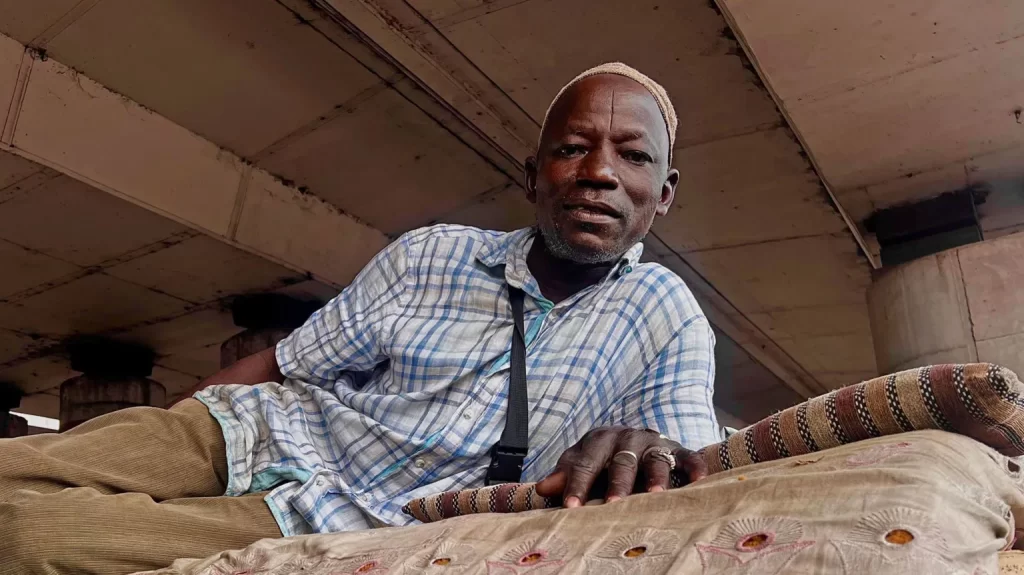For 30 years, Liya’u Sa’adu has called the space under Lagos’ Obalende Bridge home. Now 60, he’s become a guide for a growing community of homeless men seeking shelter in Nigeria’s largest city.

Sa’adu arrived in Lagos from Zurmi, a town in northwestern Zamfara state, in 1994. Today, he’s the longest-standing resident of an area dubbed “Karkashin Gada,” meaning “Under the Bridge” in the Hausa language.
“I am 60 and there are young people who came here a few months ago or a few years ago. I see it as my responsibility to guide them,” Sa’adu told The Associated Press.
The community has swelled to over 60 men, mostly from northern Nigeria, driven south by economic hardship and insecurity, including insurgencies by jihadist groups.

Tukur Garba, 31, from Katsina state, has lived under the bridge for five years. He says Sa’adu’s advice has been invaluable for newcomers navigating life in Lagos.
“He is like our elder brother because he has been here for so long. We do need words of wisdom from him because it is easy to get in trouble in Lagos,” Garba said.
Sa’adu has established a semblance of home, with a mattress atop a wooden cabinet and a mosquito net. Others share sleeping mats on the ground. They use nearby public facilities for bathing and toilets, paying 100 naira ($0.06) per visit.
Working as a scrap-metal seller, Sa’adu earns about 5,000 naira ($3) daily, barely enough to survive and send money to his family in Zamfara.

The community faces pressure from Lagos state’s environmental task force, which conducts raids, claiming the inhabitants are living there illegally. Arrests can result in fines up to 20,000 naira ($12).
“They come at around 1am or 2am, to arrest people sleeping here. Where do they want us to go?” Garba said.
Housing in Lagos remains unaffordable for many. Renting a shack in an informal settlement costs around 100,000 naira ($48) annually, while a small apartment in a working-class area runs about 350,000 naira ($220) per year.
The government’s current housing initiatives focus on low-salary workers rather than the homeless. There are no official plans to provide shelter for those living on the streets.

Adamu Sahara, a long-time resident near Karkashin Gada, noted the increase in homelessness. “Nigerian leaders have to be aware of what is happening so they can fix the problem because no human being is supposed to sleep under a bridge,” he said.
For Sa’adu, returning to Zamfara isn’t an option due to ongoing security concerns and limited economic opportunities. He has adapted to life under the bridge, even finding comfort in the constant noise of traffic overhead.
“I am already used to the sound of cars. It doesn’t affect my sleep at all especially after a tired day,” Sa’adu said.
A bbc story



